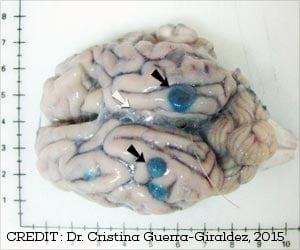The researchers at the Aberdeen University have found out molecules that could aid in the treatment of cancer, heart diseases and other serious disorders.
The researchers at the Aberdeen University have found out molecules that could aid in the treatment of cancer, heart diseases and other serious disorders.
The expression of this molecule, sflt-1, a free-floating receptor for vascular endothelial growth factor A, prevents the formation of vision obstructing blood vessels, thus keeps the cornea clear.According to the researchers, this discovery could help in the development of new drugs, new therapies for eye diseases and eye injuries. The Aberdeen team and colleagues at the Medical College of Georgia and the University of Kentucky in the US conducted this research.
Dr Martin Collinson, senior lecturer at the University of Aberdeen, said, "The molecule is an amazing finding". He added: "The cornea is widely used by scientists who hope to study how blood vessels grow or how to inhibit the growth of new blood vessels. "This knowledge will help to treat diseases like cancer, heart disease, rheumatoid arthritis, stroke and eye disorders like macular degeneration. "The cornea is our window on the world. If it contained blood vessels it would not be transparent and we would not be able to see. "If you study a normal eye you will see blood vessels in the whites of the eye but these stop at the cornea."
The cornea could get vascularised or form blood vessels due to disease or injury. Tumors are able to grow due to their capacity to attract blood vessels. Hence, vascularisation is crucial in diseases like cancer.
Source-Medindia
GYT






